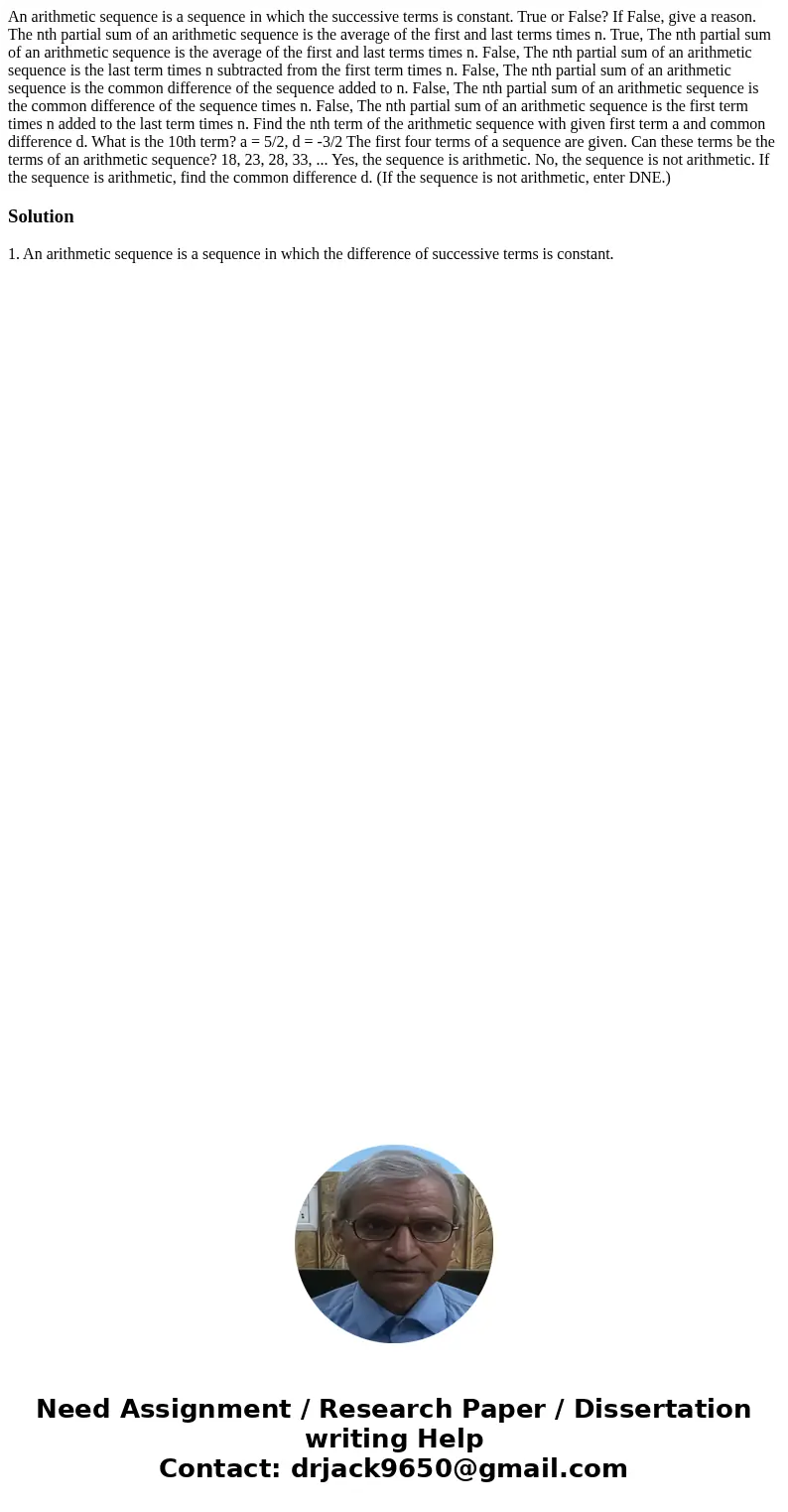An arithmetic sequence is a sequence in which the successive
An arithmetic sequence is a sequence in which the successive terms is constant. True or False? If False, give a reason. The nth partial sum of an arithmetic sequence is the average of the first and last terms times n. True, The nth partial sum of an arithmetic sequence is the average of the first and last terms times n. False, The nth partial sum of an arithmetic sequence is the last term times n subtracted from the first term times n. False, The nth partial sum of an arithmetic sequence is the common difference of the sequence added to n. False, The nth partial sum of an arithmetic sequence is the common difference of the sequence times n. False, The nth partial sum of an arithmetic sequence is the first term times n added to the last term times n. Find the nth term of the arithmetic sequence with given first term a and common difference d. What is the 10th term? a = 5/2, d = -3/2 The first four terms of a sequence are given. Can these terms be the terms of an arithmetic sequence? 18, 23, 28, 33, ... Yes, the sequence is arithmetic. No, the sequence is not arithmetic. If the sequence is arithmetic, find the common difference d. (If the sequence is not arithmetic, enter DNE.) 
Solution
1. An arithmetic sequence is a sequence in which the difference of successive terms is constant.

 Homework Sourse
Homework Sourse